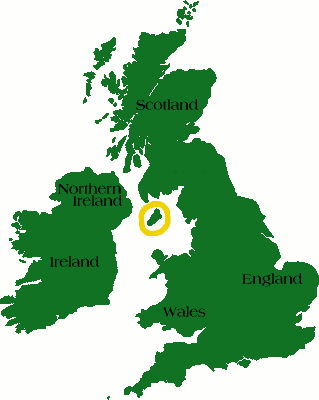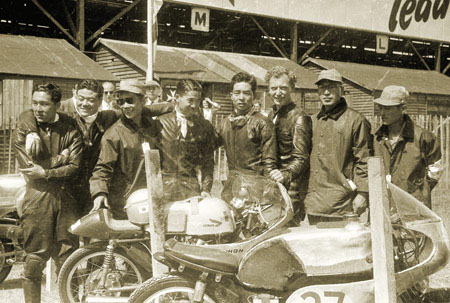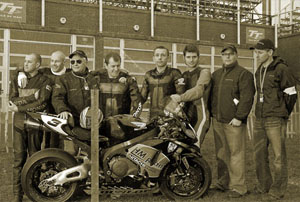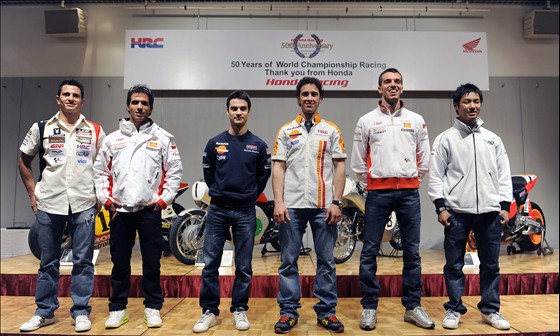
APRILIA RS4
Aprilia's small supersports bikes have been completely revised. Two models dedicated for young enthusiasts who want their first experience in the motorcycling world to be with a proper bike.
- Aprilia RS4 marked a milestone in the evolution of the 125 cc motorcycle.
For the first time ever, the sportiest bike available for 16 year olds was a 4-stroke.
- For the youngest riders of all, the Aprilia RS4 50 embodies all of Aprilia's technology in a genuine racing replica in just 50 cc.
Aprilia has always been the undisputed leader in the 50 and 125 cc supersports segment, pioneering innovative concepts and solutions and setting trends for its rivals to follow.
Aprilia RS4 50 and Aprilia RS4 125 take the concept of the sports bike for novice riders who want to enter the motorcycling world with a proper bike to new levels of technological sophistication.
The Aprilia RS4 125 is the natural successor and most advanced evolution to date of the Aprilia RS 125, the bike that has dominated the 125 cc sports class for years, which set the benchmark for the one-eighth litre sports segment and which is still today the most highly sought after machine among riders competing in the Sport Production category.
Aprilia RS4 125 introduces the highly advanced, all-new 4 stroke powerplant to the sports segment, while adopting styling and technical solutions inherited from the RSV4, the superbike that led Aprilia to victory in the WSBK 2010 championship.
The most significant characteristics of the Aprilia RS4 50 and Aprilia RS4 are:
- RS4 50 - single cylinder, liquid cooled 50 cc 2-stroke engine
- RS4 125 - single cylinder liquid cooled 125 cc 4-stroke with electronic injection, 4 valves and double overhead camshafts (DOHC)
characteristics in common:
- extremely stiff aluminium perimeter frame derived from racing experience
- 41 mm upside down fork
- front brake with 300 mm disc and radial four piston calliper
- Superbike inspired analogue/digital instrument panel
- fairings derived directly from RSV4 project for total aesthetic coherence with the SBK world champion
DESIGNThe livery and eye-catching forms of the Aprilia RS4 50 and RS4 125 echo the looks of the Factory version of the Aprilia RSV4 supersports bike. And the RS4 50 and RS4 125 share more than just a family resemblance with the most hardcore street version the bike dominating the world SBK championship.
The design of the fairings and tank, the unique looks of the front end, with the headlights suspended over the gaping air intakes, and the spectacular tapered tail fairing are identical to their counterparts on 1000 cc supersports model that set new standards in terms of style and technical content for the superbike segment.
Extensive aerodynamic studies have minimised surface areas without compromising wind protection, and the fairings showcase the superlative mechanicals of the Aprilia RS4 50 and Aprilia RS4 125 rather than conceal them. As a result, the frame and engine are not hidden away but proudly flaunted as fundamental elements of the design of Aprilia's new small supersports models. With the triple headlight, the Aprilia RS4 50 and RS4 have a decidedly aggressive look that lends a unique character to the entire front end. The LED taillight merges stunningly into the ultra-compact tail fairing and offers excellent luminosity. Even from behind, the Aprilia RS4 125 is absolutely unmistakable.
The product of extensive wind tunnel testing and race experience, the fairing offers excellent wind protection together with superb aerodynamic efficiency. And as well as contributing to the extremely aggressive looks of the bike, the top fairing and tail fairing also maximise performance in terms of speed.
 ENGINES
ENGINESWith the new RS4 50 and RS4 125, Aprilia confirms its global leadership in the small capacity sports bike segment, creating models that exceed the expectations of even the most discerning rider.
The sophisticated chassis architecture of the Aprilia RS4 50 and RS4 125 is complemented by state of the art engines.
The single cylinder 50 cc unit developed by Aprilia for the RS4 50 is a water cooled two-stroke with reed valve induction. The lubrication uses a separate mixing system with a variable capacity volumetric pump. The six speed gearbox lets the rider make full use of the performance of this class beating engine.
The Aprilia RS4 is powered by an all new 125 cc water cooled 4 stroke single cylinder engine with four valves and electronic engine boasting a sophisticated double overhead camshaft (DOHC) valve timing system. This state of the art engine produces the maximum power output permitted for the class with a smooth, linear delivery and ecologically - as it meets even the strictest emissions regulations in effect.
With a six speed gearbox allowing the rider to make full use of the power available in all conditions, the Aprilia RS4 offers unbeatable performance in its class not just in terms of absolute power at high engine speeds, but also in terms of usable power band, minimised vibration and outstanding mechanical reliability.
The product of a cutting edge design, the new single cylinder 125 cc unit features dry sump lubrication making it extremely light and compact, allowing Aprilia's engineers to develop a class beating chassis layout.
CHASSISThe RS4 50 and RS4 125 stand head and shoulders above the competition for their superlative chassis layout: developed on the basis of Aprilia's outstanding successes in WSBK and GP 125, the frame consists of die cast aluminium spars with crossed reinforcement ribs. With its state of the art design, this extremely lightweight structure offers exceptional torsional stiffness.
The front suspension also boasts a class beating layout, with a sturdy 41 mm upside fork, red anodised stanchion clamps and a wheel travel of 110 mm, while at the rear is a monoshock linked directly to the asymmetric swingarm.
Both the Aprilia RS4 50 and RS4 125 boast class beating brake systems: each bike uses a 300 mm steel disc at the front, gripped by a four piston radial calliper, and a 220 mm disc at the rear with a single piston calliper.
The 17” wheels are shod with 100/80 rubber up front and a 130/70 tyre at the rear.
STANDARD EQUIPMENT AND FEATURESThe multifunctional analogue/digital instrument panel with LCD display draws directly from Aprilia's experience in the Superbike class. The split 6-spoke design of the wheels further emphasises the purposeful character of Aprilia's latest small capacity sports bikes.
On Aprilia RS4, one additional detail underscores the level of sophistication of the bike: the exhaust, which is unmistakably inspired by competition machines, is completely integrated within the lower part of the fairing. A solution that is not just visually effective, but which also contributes significantly to the dynamics of the bike by helping to centralise masses.
The passenger saddle is yet another example of the extreme level of sophistication of these new bikes from Aprilia. Instead of fiddly screws, a practical quick release button allows the passenger seat to be exchanged with the tail fairing cover in an instant to transform the bike from two seat to single seat configuration
APRILIA RS4 50 - Technical specifications Engine type
| Single cylinder, 2 stroke, liquid-cooled
|
Bore and stroke
| 39.86 x 40 mm
|
Engine capacity
| 49.9cc
|
Compression ratio
| 11.5 :1
|
Carburettor
| Dell’Orto PHVA – 17.5
|
Ignition
| Electronic C.D.I.
|
Starting
| Electric
|
Battery
| 12V – 6Ah
|
Lubrication
| Automatic mixer
|
Gearbox
| 6 speeds, I 11/34, II 15/30, III 18/27, IV 20/24, V 22/23, VI 23/22 |
Primary drive
| Gears, 21/78
|
Final drive
| Chain, 11/53
|
Clutch
| Multidisc
|
Exhaust system
| Euro 2
|
Frame
| Twin spar aluminium frame
|
Front suspension
| 41 mm upside down fork, wheel travel 110 mm
|
Rear suspension
| Asymmetric swingarm with monoshock, wheel travel 130 mm
|
Brakes
| Front: 300 mm stainless steel disc with radial 4 piston calliper
|
| Rear: 218 mm stainless steel disc and calliper with single 25 mm piston
|
Wheel rims
| In light alloy with 6 split spokes, with sealing profile for tubeless tyres; front: 2.75 x 17"; rear: 3.50 x 17"
|
Tyres
| Front: 110/80 - 17", rear: 130/70 - 17"
|
Dimensions
| Max. Length 1953 mm
Max width 740 mm
Max height at top fairing 1,138 mm
Saddle height 820 mm
Wheelbase 1,350 mm
|
Fuel tank capacity
| 14.5 litres
|
APRILIA RS4 125 - Technical specifications | Engine type | Four stroke liquid cooled single cylinder with electronic injection and 4 valves.
Euro 3 homologated |
| Bore and stroke | 58 X 47 mm
|
| Engine capacity
Timing system | 124.8 cc
Double overhead camshaft - DOHC
|
| Compression ratio | 12.5 ± 0.5:1 |
| ECU | Magneti Marelli MIU G3 32 mm diam. |
| Ignition | Electronic with CDI capacity discharge |
| Starting | Electric |
| Alternator | 13V - 235W |
| Lubrication | Wet sump |
| Gearbox: | 6 speed.
1st 11/33 (0.33) 2nd 15/30 (0.50) 3rd 18/27 (0.67) 4th 20/24 (0.83) 5th 25/27 (0.92) 6th 23/22 (1.05) |
| Primary drive | Gears: 73/24 (3.04) |
| Final drive | Chain: 49/14 (3.50) |
| Clutch | Multiple discs, in oil bath |
| Frame | Aluminium perimeter frame |
| Front suspension | 41 mm upside down fork, wheel excursion 110 mm
|
| Rear suspension | Asymmetric swingarm with monoshock, wheel travel 130 mm
|
| Brakes | Front: 300 mm stainless steel disc with radial 4 piston calliper
|
|
| Rear: 218 mm stainless steel disc and calliper with single 25 mm piston
|
| Wheel rims | In light alloy with 6 split spokes, with sealing profile for tubeless tyres; front: 2.75 x 17"; rear: 3.50 x 17"
|
| Tyres | Front: 110/80 - 17", rear: 130/70 - 17"
|
| Dimensions | Max. Length 1953 mm
Max width 740 mm
Max height at top fairing 1,138 mm
Saddle height 820 mm
Wheelbase 1,350 mm
|
| Fuel tank capacity | 14.5 litres (including 3.5 litre reserve) |





























+HondaV4Concept-5.jpg)



















